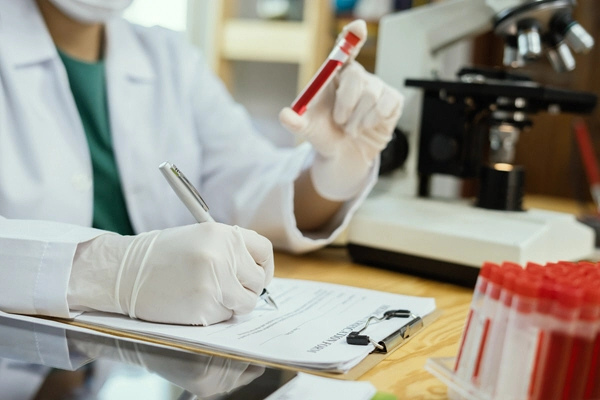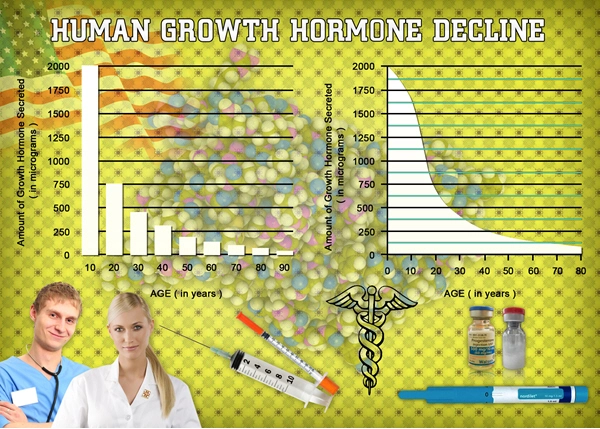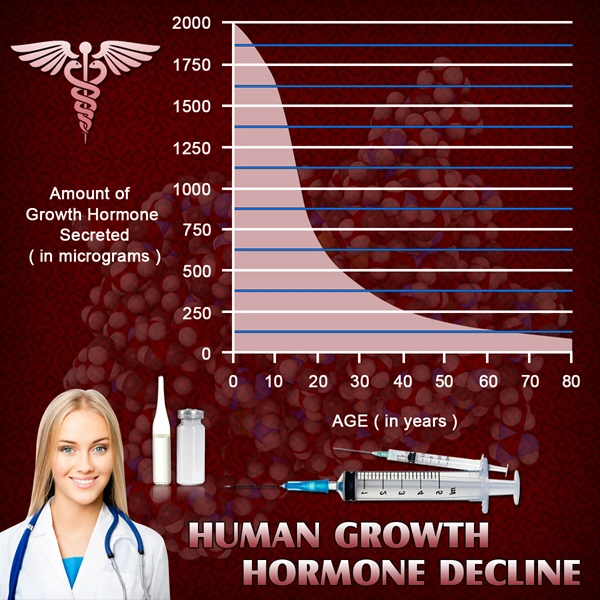Introduction
Urological cancers, including prostate, bladder, and kidney cancers, represent a significant health concern among American males. Early detection through urological screening is pivotal in improving outcomes and survival rates. This article delves into the current guidelines and practices surrounding urological screening, aiming to enhance understanding and encourage proactive health management among American men.
The Importance of Urological Screening
Urological screening plays a crucial role in the early detection of cancers that might otherwise go unnoticed until they reach advanced stages. Early detection not only increases the likelihood of successful treatment but also significantly reduces the morbidity and mortality associated with these cancers. For American males, who face a higher risk of developing certain urological cancers, regular screening is a vital component of preventive healthcare.
Current Guidelines for Prostate Cancer Screening
Prostate cancer is the most common non-skin cancer among American men. The American Cancer Society recommends that men make an informed decision about screening after discussing the potential benefits and risks with their healthcare provider. The primary screening tool is the prostate-specific antigen (PSA) test, often combined with a digital rectal exam (DRE). Men at average risk should consider screening starting at age 50, while those at higher risk, including African American men and those with a family history of prostate cancer, should start at age 45.
Bladder Cancer Screening Recommendations
Bladder cancer, though less common than prostate cancer, is still a significant concern. There are no routine screening tests recommended for individuals at average risk. However, for those with a history of bladder cancer or exposure to certain risk factors, such as smoking or occupational exposure to chemicals, regular cystoscopy and urine cytology may be advised. Awareness and early consultation with healthcare providers are essential for those at increased risk.
Kidney Cancer Screening Practices
Kidney cancer screening is not routinely recommended for the general population. However, individuals with certain risk factors, such as a family history of kidney cancer, genetic syndromes, or chronic kidney disease, may benefit from targeted screening. Imaging tests like ultrasound or CT scans can be used to monitor those at higher risk. Education about risk factors and symptoms is crucial for early detection and intervention.
Challenges and Considerations in Urological Screening
Despite the benefits, urological screening faces several challenges. Overdiagnosis and overtreatment, particularly with prostate cancer, can lead to unnecessary interventions and psychological distress. Balancing the benefits of early detection with the risks of overdiagnosis requires careful consideration and personalized decision-making. Additionally, disparities in access to screening and healthcare services can impact the effectiveness of screening programs, particularly among underserved populations.
Promoting Proactive Health Management
To maximize the benefits of urological screening, American males should engage in proactive health management. This includes regular check-ups, open communication with healthcare providers about family history and risk factors, and staying informed about the latest screening guidelines. Education and awareness campaigns can play a significant role in encouraging men to prioritize their urological health.
Conclusion
Urological screening is a cornerstone of early cancer detection and improved health outcomes for American males. By adhering to current guidelines and engaging in informed discussions with healthcare providers, men can take proactive steps toward managing their urological health. As research and technology continue to evolve, staying updated on screening practices will remain essential in the fight against urological cancers.

- Urological Health Guide: Conditions, Sexual Wellness, and Lifestyle Impact on American Men [Last Updated On: March 8th, 2025] [Originally Added On: March 8th, 2025]
- Modern Urology: Minimally Invasive, Advanced Diagnostics, Telemedicine for American Males [Last Updated On: March 18th, 2025] [Originally Added On: March 18th, 2025]
- Urological Conditions and Their Impact on Male Fertility: Diagnosis and Treatment [Last Updated On: March 18th, 2025] [Originally Added On: March 18th, 2025]
- Genetics and Urological Health: Insights for American Men's Well-being [Last Updated On: March 19th, 2025] [Originally Added On: March 19th, 2025]
- Preventing Urological Infections in American Males: Risks, Measures, and Health Strategies [Last Updated On: March 19th, 2025] [Originally Added On: March 19th, 2025]
- Exercise and Urological Health: A Comprehensive Guide for American Men [Last Updated On: March 20th, 2025] [Originally Added On: March 20th, 2025]
- Urological Health Strategies for American Men: Balancing Work and Wellness [Last Updated On: March 20th, 2025] [Originally Added On: March 20th, 2025]
- Urological Health Guide for American Men: Symptoms, Conditions, and Prevention [Last Updated On: March 21st, 2025] [Originally Added On: March 21st, 2025]
- Smoking's Impact on Urological Health in American Men: Risks and Cessation Benefits [Last Updated On: March 21st, 2025] [Originally Added On: March 21st, 2025]
- Hydration's Vital Role in Urological Health for American Males: Strategies and Benefits [Last Updated On: March 21st, 2025] [Originally Added On: March 21st, 2025]
- Supplements and Urological Health: Benefits and Considerations for American Men [Last Updated On: March 21st, 2025] [Originally Added On: March 21st, 2025]
- Managing Urological Pain in Men: Causes, Diagnosis, and Treatment Options [Last Updated On: March 22nd, 2025] [Originally Added On: March 22nd, 2025]
- Urological Health in American Men: Conditions, Mental Well-being, and Holistic Management [Last Updated On: March 23rd, 2025] [Originally Added On: March 23rd, 2025]
- Urological Rehabilitation: Enhancing Quality of Life for American Men [Last Updated On: March 23rd, 2025] [Originally Added On: March 23rd, 2025]
- Heart Health and Urological Function: Critical Connections for American Males [Last Updated On: March 23rd, 2025] [Originally Added On: March 23rd, 2025]
- Urological Health's Psychological Impact on American Males: A Holistic Approach [Last Updated On: March 23rd, 2025] [Originally Added On: March 23rd, 2025]
- Obesity's Impact on Urological Health in American Men: Risks and Management Strategies [Last Updated On: March 23rd, 2025] [Originally Added On: March 23rd, 2025]
- Urological Surgery Recovery Guide for U.S. Males: Tips and Strategies [Last Updated On: March 23rd, 2025] [Originally Added On: March 23rd, 2025]
- Technological Advances Revolutionizing Urological Diagnosis for American Males [Last Updated On: March 23rd, 2025] [Originally Added On: March 23rd, 2025]
- Urological Education: Empowering American Males for Better Health Outcomes [Last Updated On: March 23rd, 2025] [Originally Added On: March 23rd, 2025]
- Veterans' Urological Care: Specialized Services and Innovative Treatments by VHA [Last Updated On: March 23rd, 2025] [Originally Added On: March 23rd, 2025]
- Urological Health Strategies for American Men Over 50 [Last Updated On: March 23rd, 2025] [Originally Added On: March 23rd, 2025]
- Medications' Impact on Urological Health: Insights for American Men [Last Updated On: March 24th, 2025] [Originally Added On: March 24th, 2025]
- Urological Health: Vital Screening for Young American Males' Well-being [Last Updated On: March 24th, 2025] [Originally Added On: March 24th, 2025]
- Essential Urological Procedures for American Males: A Comprehensive Guide [Last Updated On: March 24th, 2025] [Originally Added On: March 24th, 2025]
- Urological Health and Fertility: A Guide for American Males Planning Families [Last Updated On: March 24th, 2025] [Originally Added On: March 24th, 2025]
- Urological Health and Mental Well-being: A Holistic Approach for American Men [Last Updated On: March 24th, 2025] [Originally Added On: March 24th, 2025]
- Urological Health in Sports: Risks, Prevention, and Nutrition for Athletes [Last Updated On: March 25th, 2025] [Originally Added On: March 25th, 2025]
- Stress Impact on Urological Health in American Males: Prostate, Sexual, and Urinary Effects [Last Updated On: March 25th, 2025] [Originally Added On: March 25th, 2025]
- Urological Health: Vital for American Men's Longevity and Quality of Life [Last Updated On: March 25th, 2025] [Originally Added On: March 25th, 2025]
- Urological Health and Sleep Quality: A Vital Connection for American Men [Last Updated On: March 25th, 2025] [Originally Added On: March 25th, 2025]
- Urological Health Management Tips for American Men Traveling [Last Updated On: March 25th, 2025] [Originally Added On: March 25th, 2025]
- Urological Health and Insurance: Navigating Coverage for Men's Well-being [Last Updated On: March 26th, 2025] [Originally Added On: March 26th, 2025]
- Urological Health: Impact and Management for American Men's Quality of Life [Last Updated On: March 26th, 2025] [Originally Added On: March 26th, 2025]
- Urological Health: Vital for American Men's Wellness and Quality of Life [Last Updated On: March 26th, 2025] [Originally Added On: March 26th, 2025]
- Debunking Urological Myths: Empowering American Men with Health Facts [Last Updated On: March 26th, 2025] [Originally Added On: March 26th, 2025]
- Managing Urological Health in Men: Chronic Conditions and Strategies [Last Updated On: March 26th, 2025] [Originally Added On: March 26th, 2025]
- Dietary Guide for Urological Health in American Men: Nutrition and Hydration Focus [Last Updated On: March 27th, 2025] [Originally Added On: March 27th, 2025]
- Urological Health and Cancer: Vital Insights for American Males [Last Updated On: March 27th, 2025] [Originally Added On: March 27th, 2025]
- Urological Health and Bone Density: A Vital Connection for American Males [Last Updated On: March 27th, 2025] [Originally Added On: March 27th, 2025]
- Alcohol's Impact on Urological Health: Risks and Mitigation Strategies for Men [Last Updated On: March 28th, 2025] [Originally Added On: March 28th, 2025]
- Urological Health's Impact on American Men's Social Lives and Management Strategies [Last Updated On: March 28th, 2025] [Originally Added On: March 28th, 2025]
- Environmental Impacts on Urological Health in American Males: Risks and Mitigation Strategies [Last Updated On: March 28th, 2025] [Originally Added On: March 28th, 2025]
- Urological Health Guide for American Males: Best Practices and Prevention [Last Updated On: March 28th, 2025] [Originally Added On: March 28th, 2025]
- Urological Health Essentials for American Men: Prevention, Screening, and Lifestyle [Last Updated On: March 28th, 2025] [Originally Added On: March 28th, 2025]
- Urological Health and Hearing Loss: A Critical Connection in American Males [Last Updated On: March 28th, 2025] [Originally Added On: March 28th, 2025]
- Exercise and Urological Health: Benefits, Safe Practices, and Specific Exercises for American Males [Last Updated On: March 28th, 2025] [Originally Added On: March 28th, 2025]
- Urological Health and Skin Care: A Vital Connection for American Males [Last Updated On: March 28th, 2025] [Originally Added On: March 28th, 2025]
- Urological Health and Immunity: Strategies for American Males [Last Updated On: March 29th, 2025] [Originally Added On: March 29th, 2025]
- Integrating Urological Health into Men's Campaigns: A Vital Step for American Males [Last Updated On: March 29th, 2025] [Originally Added On: March 29th, 2025]
- Urological Health Linked to Vision Problems in American Men: Importance of Screenings [Last Updated On: March 29th, 2025] [Originally Added On: March 29th, 2025]
- Urological Health Advocacy: Enhancing Men's Well-being in the U.S. [Last Updated On: March 29th, 2025] [Originally Added On: March 29th, 2025]
- Urological Health: Key to Men's Sexual Wellness in America [Last Updated On: March 29th, 2025] [Originally Added On: March 29th, 2025]
- Urological-Dental Health Link: Implications for American Men's Well-being [Last Updated On: April 1st, 2025] [Originally Added On: April 1st, 2025]
- Urological-Respiratory Health Link: Impacts and Management for American Males [Last Updated On: April 4th, 2025] [Originally Added On: April 4th, 2025]
- Urological Health: Vital for American Men's Wellness and Research Focus [Last Updated On: April 4th, 2025] [Originally Added On: April 4th, 2025]
- Urological Health in Men: Importance, Detection, and Lifestyle Impact in America [Last Updated On: April 5th, 2025] [Originally Added On: April 5th, 2025]
- Urological and Digestive Health: Vital Connections for American Males' Well-being [Last Updated On: April 6th, 2025] [Originally Added On: April 6th, 2025]
- Enhancing Urological Health Policy for American Men: Needs and Strategies [Last Updated On: April 7th, 2025] [Originally Added On: April 7th, 2025]
- Urological Health and Neurological Impact in American Males: A Comprehensive Overview [Last Updated On: April 9th, 2025] [Originally Added On: April 9th, 2025]
- Urological Health's Impact on American Men's Careers: Strategies for Management [Last Updated On: April 9th, 2025] [Originally Added On: April 9th, 2025]
- Urological Health's Impact on Men's Family Life in the U.S.: Challenges and Support [Last Updated On: April 10th, 2025] [Originally Added On: April 10th, 2025]
- Urological Health and Endocrine System: Vital Connections for Men's Well-being [Last Updated On: April 10th, 2025] [Originally Added On: April 10th, 2025]
- Urological and Cardiovascular Health: Vital Connections and Preventive Strategies for American Males [Last Updated On: April 10th, 2025] [Originally Added On: April 10th, 2025]
- Urological Health in Men: Importance, Detection, and Integration into Wellness Programs [Last Updated On: April 11th, 2025] [Originally Added On: April 11th, 2025]
- Urological and Musculoskeletal Health Link in American Men: A Holistic Approach [Last Updated On: April 11th, 2025] [Originally Added On: April 11th, 2025]
- Urological Health: Vital for American Men's Wellness and Longevity [Last Updated On: April 13th, 2025] [Originally Added On: April 13th, 2025]
- Urological Health's Impact on American Men's Community Involvement and Engagement [Last Updated On: April 14th, 2025] [Originally Added On: April 14th, 2025]
- Urological Health and Immune System: Strategies for American Males [Last Updated On: April 15th, 2025] [Originally Added On: April 15th, 2025]
- Urological Health's Impact on Men's Reproductive Well-being and Fertility [Last Updated On: April 15th, 2025] [Originally Added On: April 15th, 2025]
- Urological Health and Mental Well-being: A Holistic Approach for American Males [Last Updated On: April 15th, 2025] [Originally Added On: April 15th, 2025]
- Urological Health and Emotional Well-being: A Comprehensive Guide for American Men [Last Updated On: April 16th, 2025] [Originally Added On: April 16th, 2025]
- Urological Health: Vital for American Men's Overall Well-being and Quality of Life [Last Updated On: April 16th, 2025] [Originally Added On: April 16th, 2025]
- Urological Health: Vital for American Men's Well-being and Advocacy [Last Updated On: April 16th, 2025] [Originally Added On: April 16th, 2025]
- Urological Health's Impact on American Males' Physical Well-being: A Comprehensive Overview [Last Updated On: April 17th, 2025] [Originally Added On: April 17th, 2025]
- Urological Health's Impact on American Men's Social Well-being: Strategies and Insights [Last Updated On: April 18th, 2025] [Originally Added On: April 18th, 2025]
- Urological Health: Vital for Men's Well-being and Prevention Strategies [Last Updated On: April 19th, 2025] [Originally Added On: April 19th, 2025]
- Urological Health in American Men: Education, Early Detection, and Stigma Reduction [Last Updated On: April 19th, 2025] [Originally Added On: April 19th, 2025]
- Urological Health's Impact on American Males' Life Quality and Proactive Care Strategies [Last Updated On: April 21st, 2025] [Originally Added On: April 21st, 2025]
- Guide to Urological Health: Conditions, Prevention, and Treatment for American Men [Last Updated On: April 22nd, 2025] [Originally Added On: April 22nd, 2025]



List of USA state clinics - click a flag below for blood testing clinics.
Word Count: 545


















































